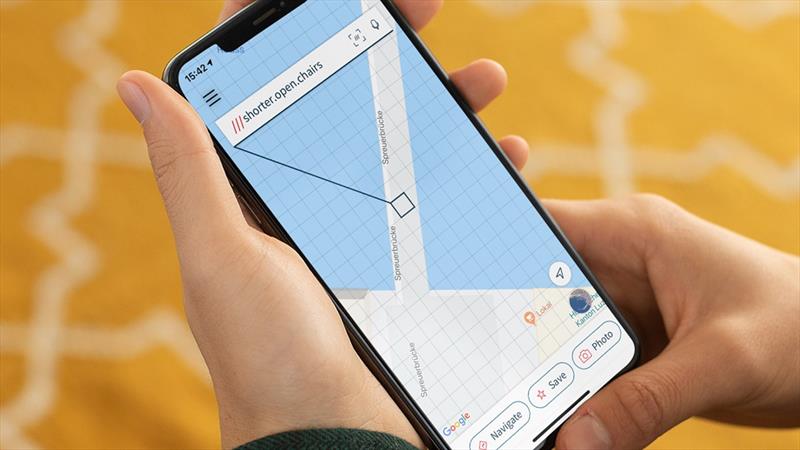
what3words: The simplest way to talk about location
by Miriam Frank 19 Feb 2020 09:07 UTC

The unique location App © Rebecca Diver-Clarke
what3words is the simplest way to talk about location. The location technology company is enabling people around the world to identify and share any precise location using just three words.
Even in the world's best-addressed locations, traditional street addressing is failing to meet the demands of today's on-the-go services like taxi-hailing, food delivery and same-day deliveries and e-commerce. Globally, 70% of addresses will not take you to the front door, with 74% of people saying guests, services and deliveries struggle to find them*. Inaccurate addressing is costly to businesses, frustrating for customers and is hampering innovation.
And in the developing world, the need for better addressing is clear: the Universal Postal Union estimates that 75% of countries have poorly maintained addressing systems, or none at all. This obstructs access to healthcare, the ability to register a birth, vote, open a bank account and to be found in an emergency. It also hampers the growth of developing nations.
what3words' goal is to become a global standard for communicating location. It gives everyone and everywhere a simple, accurate and reliable address. 3 word addresses are easier to remember than a postal address and can be shared more accurately than any other location reference system. It is also the first addressing system entirely optimised for voice, allowing for the easiest and most human-friendly possible input. 3 word addresses are currently available in 40 languages, allowing more than half of the world's countries to use them in at least one of their official languages.
what3words has taken the globe, and divided it into a grid of 3m squares, giving each one a unique 3 word address, made of three words from the dictionary. For example, the front door to what3words' London office can be found at filled.count.soap.
what3words can be used for free by individuals via an app for iOS and Android. It can be easily integrated by businesses, governments and NGOs into apps, platforms or websites with just a few lines of code. Businesses are adopting what3words to improve their customer experience and increase efficiency while reducing costs and their environmental impact. Over 1000 businesses, government agencies and NGOs across 170 countries are using 3 word addresses in sectors including automotive, e-commerce, logistics, mobility, travel, post and emergency services.
The company's partners include Mercedes-Benz, who recently launched the world's first car with built-in what3words voice navigation. Mercedes-Benz, Ford and TomTom drivers can now navigate anywhere in the world by saying three words to their car. Global logistics giant Aramex has integrated what3words to optimise its last mile operations in the Middle East, increasing efficiency by over 40%. Meanwhile, Domino's Pizza is delivering food hotter and faster to 3 word addresses around the world, whilst travellers are navigating with ease with the help of Lonely Planet's and Airbnb's 3 word address listings. And numerous humanitarian partners are using the technology to help people in need: The United Nations has adopted the technology for disaster response and relief, in addition to the Philippine Red Cross. Many of the UK emergency services can also accept 3 word addresses to locate people in need.
Future-facing companies have been quick to adopt what3words, such as IBM's #AccessibleOlli. The autonomous vehicle built for people with disabilities uses what3words to navigate passengers to precise destinations, increasing their ability to travel independently. Similarly, drone delivery companies Hylio and DXC Technology are using 3 word addresses to help customers specify precise drop-off locations.
Individuals are using the what3words app to navigate the world more easily and to meet friends in places without addresses such as parks, beaches or at crowded festivals. 3 word addresses are being used by running clubs to set meeting points, by off-roading fans in the deserts of the Middle East, and by hotels to guide guests to their entrance without complicated written directions.
Chris Sheldrick, co-founder and CEO comments, 'In a few short years, we have experienced huge growth; we are now a team of over 120, with offices in the UK, USA, South Africa and Mongolia. We are continuing to see how businesses, governments and services worldwide use what3words to become more efficient and improve their customer experience. At the same time, we are showing how better addressing can reduce businesses' environmental impact, ease pressure on crowded cities, fuel economic growth in developing nations and save lives.'
* Based on a survey of 3,000 respondents aged 18-70 across the UK, US and Germany conducted by OnePoll.